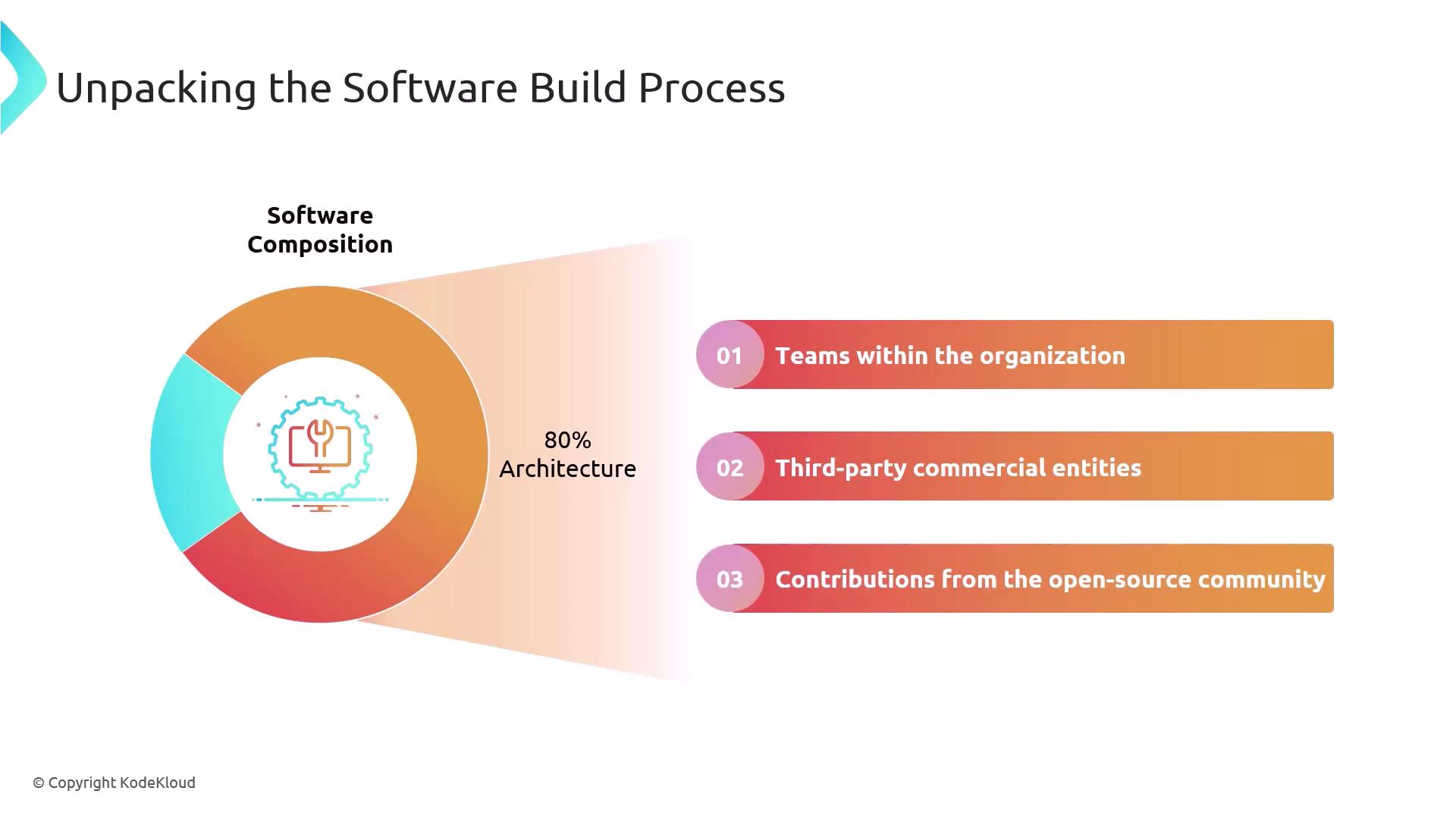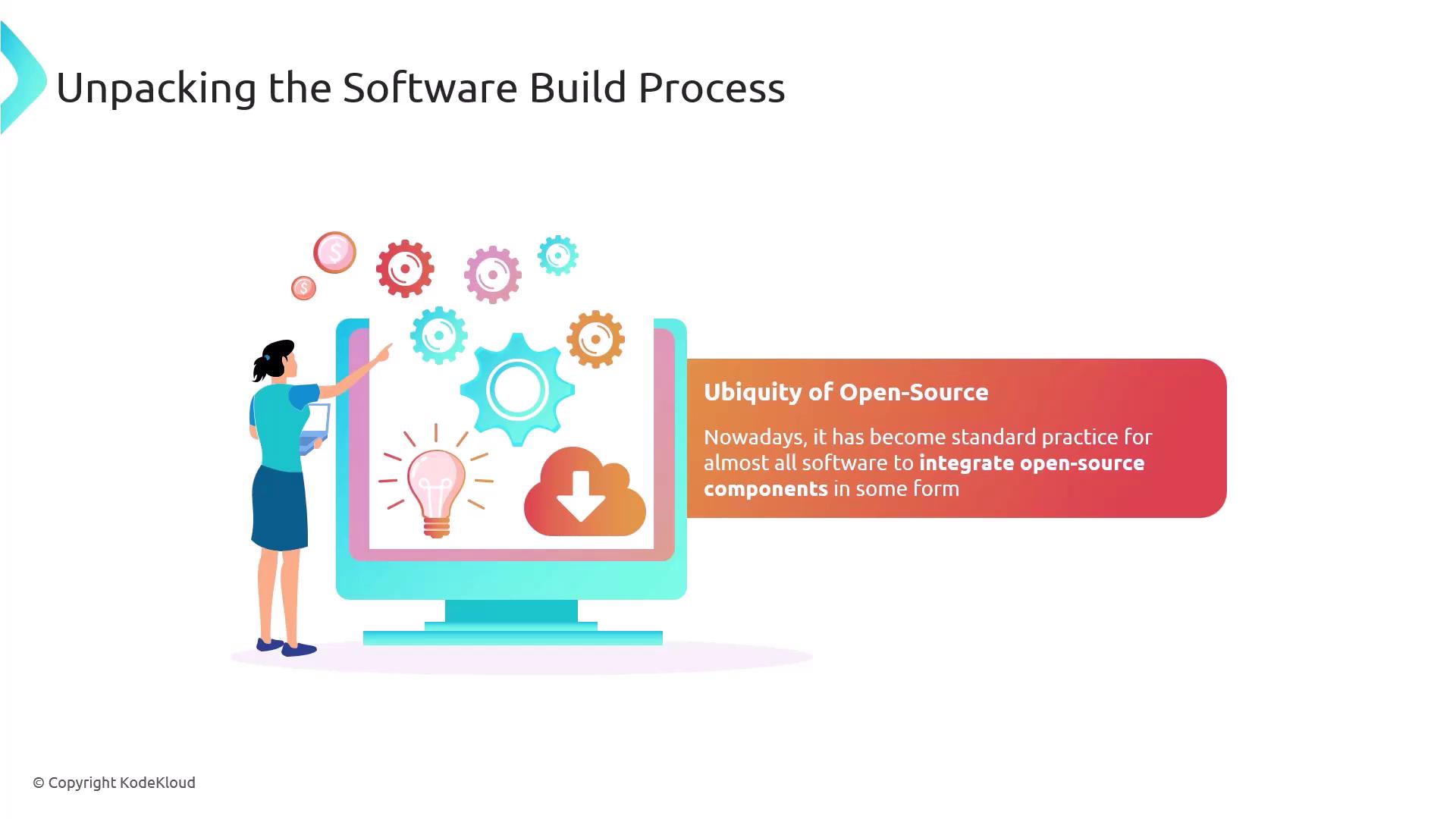AZ-400: Designing and Implementing Microsoft DevOps Solutions
Implement Security and Validate Code Bases for Compliance
Introduction to OSS
In this lesson, we’ll dive into Open Source Software (OSS) and its pivotal role in modern application development. You’ll learn how pre-built components accelerate delivery, and explore Microsoft’s comprehensive open source strategy on Azure and beyond.
Understanding Software Composition
When examined closely, up to 80% of a modern application’s architecture is assembled from existing components. These typically come from three main sources:
| Component Source | Description | Examples |
|---|---|---|
| Internal (In-House) | Custom libraries, frameworks, and shared modules | Proprietary SDKs, company-specific toolchains |
| Third-Party Commercial Vendors | Licensed middleware, frameworks, or complete software | Enterprise databases, paid analytics packages |
| Open Source Community | Freely available libraries, tools, and frameworks | React, Kubernetes, TensorFlow |

Ubiquity of Open Source in Development
Open source components are now embedded in nearly every software project. Whether you’re building microservices or a large-scale web application, OSS libraries and frameworks are almost always part of the stack.

Defining Open Source Software
Open source software is characterized by licenses that grant users the freedom to:
- Inspect: View and understand the source code.
- Modify: Adapt the code to fit unique requirements.
- Distribute: Share original or altered versions with others.
Note
Transparency and collaboration are at the heart of OSS. These freedoms foster rapid innovation, peer review, and community-driven improvements.
Microsoft’s Open Source Strategy
Microsoft has embraced OSS across its entire ecosystem:
- Enabling open source technologies on Azure so you can choose your preferred tools and frameworks.
- Contributing to and integrating projects like .NET Core and TypeScript.
- Open sourcing flagship products such as Visual Studio Code.
- Actively participating in external communities, making Microsoft one of the top OSS contributors globally.
Warning
Be sure to review and comply with open source license obligations in your projects to avoid legal and security risks.
Links and References
Watch Video
Watch video content